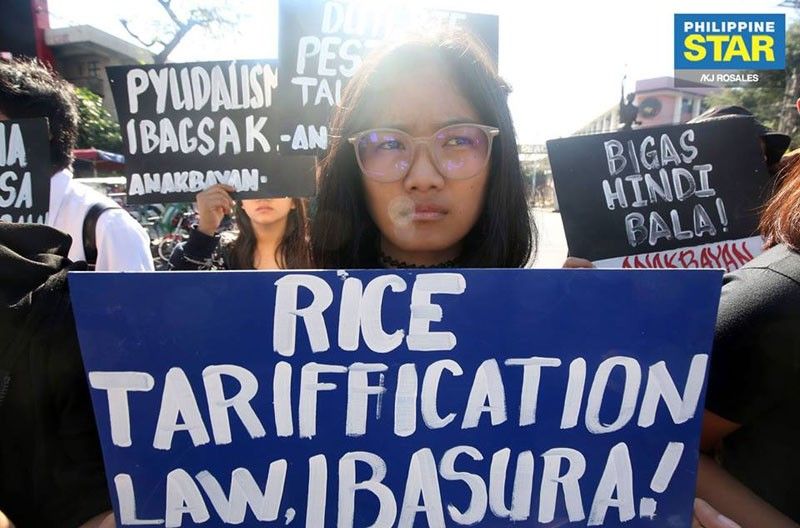Implementing rules and regulations on rice liberalization pushed back

MANILA, Philippines — The opening up of the local rice industry may be slightly delayed after the government failed to sign the implementing rules and regulations (IRR) under the rice tariff regime.
During the special interagency National Food Authority (NFA) Council meeting yesterday afternoon, Agriculture Secretary Emmanuel Piñol confirmed that the IRR has yet to be signed, which means that the law has not yet been implemented.
“It has been finalized and endorsed by the NFA Council with amendments. The final version (of the law) will go through legal scrubbing before we sign it,” Piñol said.
Piñol, however, did not elaborate on the possible changes but NFA officer-in-charge Tomas Escarez said there are no major points that will be changed.
“They are still looking at the changes that may be incorporated based on the consultations. They are still finalizing the draft but these are just small items, just more of polishing the statements,” Escarez told The STAR.
Escarez said the council has yet to come up with a new timeline as to when it will be signed, but a referendum is already being eyed.
“Secretary Piñol said it would be a referendum (among) the three agencies as soon as possible,” he said, referring to the Department of Agriculture (DA), National Economic and Development Authority (NEDA) and Bureau of Plant Industry (BPI).
“This means that instead of having another council meeting, the resolution will just be given and if they are amenable to it, they can just sign. No need to convene the council,” Escarez added.
It was NEDA that collated all the recommendations after the DA conducted consultations in different clusters nationwide to ensure that concerns of stakeholders, especially farmers, are addressed in Republic Act 11203 or the Rice Import Liberalization law.
Piñol recently allayed fears anew on the drop in palay prices, which already started even before rice liberalization officially begins.
Palay prices in some areas have dropped to a low of P15 per kilo from the average P22 per kilo in the previous months.
“This will just be an initial [reaction]. Imported rice cannot penetrate the whole market, it can only, at best, provide for 15 percent of the market. That volume may not really be able to influence the prices in other parts of the country to the point that farmers will be losing money,” Piñol earlier said.
- Latest
- Trending






























